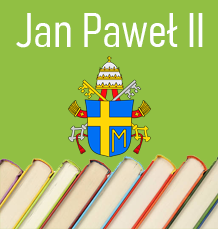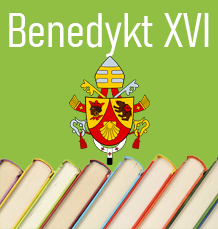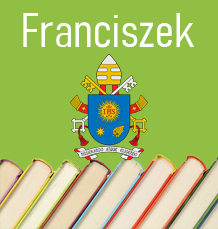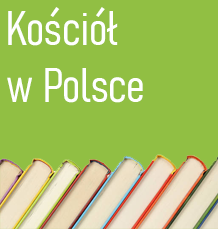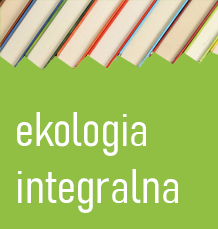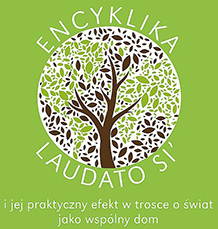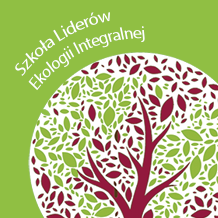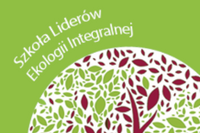 One of the REFA goals is to activate Catholic communities in Poland to act for integral ecology. Our aim is popularizing the message of Laudato si’ in the context of responsibility for the world and its challenges, like climate change. By the Integral Ecology Leaders School we want to support bottom-up local activities of people who needs to be equipped with knowledge, awareness of the importance of problems and the ability to influence others in their socio-political decisions and consumer choices. The idea of the project was to prepare leaders who will implement integral ecology in the local context.
One of the REFA goals is to activate Catholic communities in Poland to act for integral ecology. Our aim is popularizing the message of Laudato si’ in the context of responsibility for the world and its challenges, like climate change. By the Integral Ecology Leaders School we want to support bottom-up local activities of people who needs to be equipped with knowledge, awareness of the importance of problems and the ability to influence others in their socio-political decisions and consumer choices. The idea of the project was to prepare leaders who will implement integral ecology in the local context.
As part of the School of Leaders activities in the period from June 2018 to May 2019, we carried out workshops and meetings, which were attended by over 30 people from all over Poland, who wanted to initiate action in local communities and parishes, looking for inspiration, exchange of experience and knowledge in the field of Christian perspective on ecology. We addressed a variety of topics oscillating around the following questions: ways of translating the Christian attitude to creation into practical action; the character of the integral ecology model and the lifestyles implementing it; the ways we, as Christians, can get involved in the ecological and social challenges of the modern world; who is the leader of an integral ecology. Particularly noteworthy are the workshops we organized in 2018 in Katowice during the United Nations Conference on Climate Change (COP24). Together, we discussed the ways in which REFA members could join in climate protection and education of local communities. At that time, we also prepared a letter of Christian ecologists to the participants of the Climate Summit. The signatories of the letter called for “ecological conversion” so that the common good would triumph in UN negotiations and that the right decisions would be made regarding the future of life on Earth: “We moreover ask Poles and all inhabitants of our planet to become involved in the protection of the Earth’s climate in the spirit of responsibility and solidarity – and, in this way, to protect the lives and health of people on this Earth. We are convinced that Christians – and all people of good will – can answer the call of John Paul II and Francis to ‘ecological conversion’”.
Who is the modern leader of integral ecology?
We came to the conclusion that what is of importance in this respect is personal involvement and inspiration of others. This is how we formulated our “definition” of the integral ecology leader, i.e. a person who takes to heart Christian values in ecology and who wants to cooperate with others to change the local environment. We also assumed that the key issue is to take responsibility for the shape of reality that we are co-creating. We had more than one opportunity to consider together the qualities characterizing the leader. To become a leader, it is necessary to authentically implement in our daily lives the professed principles. It takes courage and enthusiasm to inspire others to action as well as open communication which relies not only on saying politically incorrect things or calling for a change of the lifestyle. Open communication assumes personal concern for the proper ways of communicating with others, the people we work with and function on a daily basis. It also implies adopting a non-exclusive attitude, work towards unity and agreement, a constructive approach to conflict resolution, searching for things that we have in common and building “bridges”. It is also important to develop mindfulness and a specific attitude of the heart: “experiencing everything with cheerful concentration” [Laudato si’ 226], which is realized in attentive being, kindness to oneself and others, creating space for cooperation and action for the common good.
The Integral Ecology Leaders School
The School of Leaders is a project meant to inspire, disseminate knowledge and encourage personal involvement. It is an open project that can be joined at any time. To this end, we have prepared an online course for self-education in the e-learning mode in the field of integral ecology, easily accessible to all interested. The course consists of the following parts:
- Large-scale ecology – covers the most important environmental problems from a global point of view;
- Small-scale ecology – presents ways to care for our immediate natural environment on a daily basis;
- Ecological teaching of the Church – presents the Church’s teaching on the protection of creation, including its moral aspects;
- The leader of integral ecology – contains tips on how to become a leader in integral ecology.
Laudato si’ Communities
One of the outcomes of the meetings organized within the Integral Ecology Leaders School is the Laudato si’ Communities project, whose foundations were formulated by the chairman of REFA, Father Stanisław Jaromi. The main assumptions of that community are the choice of: peace, not war; mutual respect, not aggression and persecution; common good, not self-centeredness; healthy living, not poisoning water, air, food and ourselves; care for nature and not its exploitation; ethical behaviour towards animals, not mindless cruelty, and attentive listening to ecological and social challenges of modern times. The leader should be responsible for such a community and, together with it, report to the local priest or superior of the monastery. REFA should provide substantive and spiritual care of the community. It is also important to cooperate with various religious, social, ecological and charitable organizations, e.g. Caritas, KSM (The Catholic Youth Association) and the World Catholic Movement for the Environment. Communities, although autonomous, can create a network of cooperation among themselves, inspiring each other and implementing joint projects. They can draw on the rich heritage of Christian spirituality with particular emphasis on the Franciscan and ecumenical traditions and the message of the encyclical Laudato si’.
The Church and the ecological crisis
The effects of the School of Leaders project were presented in May 2019 in Warsaw at the 12th conference from the cycle “Humanistic Ecology”, entitled “The Church and the Ecological Crisis. On the 30th Anniversary of the Polish Bishops’ Pastoral Letter on Environmental Protection”. It was organized by the Institute of Ecology and Bioethics of UKSW, St. Francis of Assisi Environmental Movement and the World Catholic Movement for the Environment. Its purpose was to show the Church’s commitment to recognize and overcome the environmental crisis. Ecological initiatives of the Catholic Church in Poland were presented at the conference, both by official representatives of the Church and of Catholic movements and organizations. On behalf of REFA, Father Jaromi presented the paper “Dialogical and Mediatory Potential of Integral Ecology”, Emilia Ślimko presented the project of the Integral Ecology Leaders School and Weronika Felcis made a presentation on local ecological activities in Estonian parishes and communities. At the end of the conference, the participants heard and signed an “Appeal of Christians and People of Good Will to Respect the Creation”, in which they asked “Christian sisters and brothers and all people of good will to take individual and joint actions aimed at protecting the climate, saving natural resources, not wasting food or littering, responsible consumption, care for greenery around our homes, respect for animals, preferences of public transport and other forms of reducing pollution and the negative human impact on the environment, as well as care for the most deprived, which embrace not only people and other beings living today, but also future inhabitants of the Earth”.


